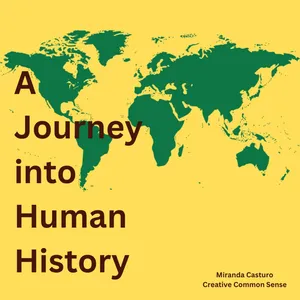The Ottomans and the Mongols

Bayezidâs son Mehmed I and his grandson Murad II rebuilt Ottoman possessions in Anatolia and Europe. In 1453, among other victories, Mehmed II conquered Constantinople. He rebuilt the city, thereafter known as Istanbul, and invited scholars and artists from Asia and Europe. He was tolerant of his non-Muslim and European subjects and allowed them to remain in Istanbul, though historians see the flight of many scholars to western Europe with the preserved knowledge of ancient Greece and Rome as one factor that helped to spark the Italian Renaissance and the transition to the early modern era. Meanwhile, western European traders began to seek all-water, oceanic routes to South and East Asia.
All images referenced in this podcast can be found at https://openstax.org/books/world-history-volume-1/pages/17-1-the-ottomans-and-the-mongols
Welcome to A Journey into Human History.
This podcast will attempt to tell the whole human story.
The content contained in this podcast was produced by OpenStax and is licensed under a Creative Commons Attribution License.
Access for free at https://openstax.org/books/world-history-volume-1/pages/1-introduction
Podcast produced by Miranda Casturo as a Creative Common Sense production.


